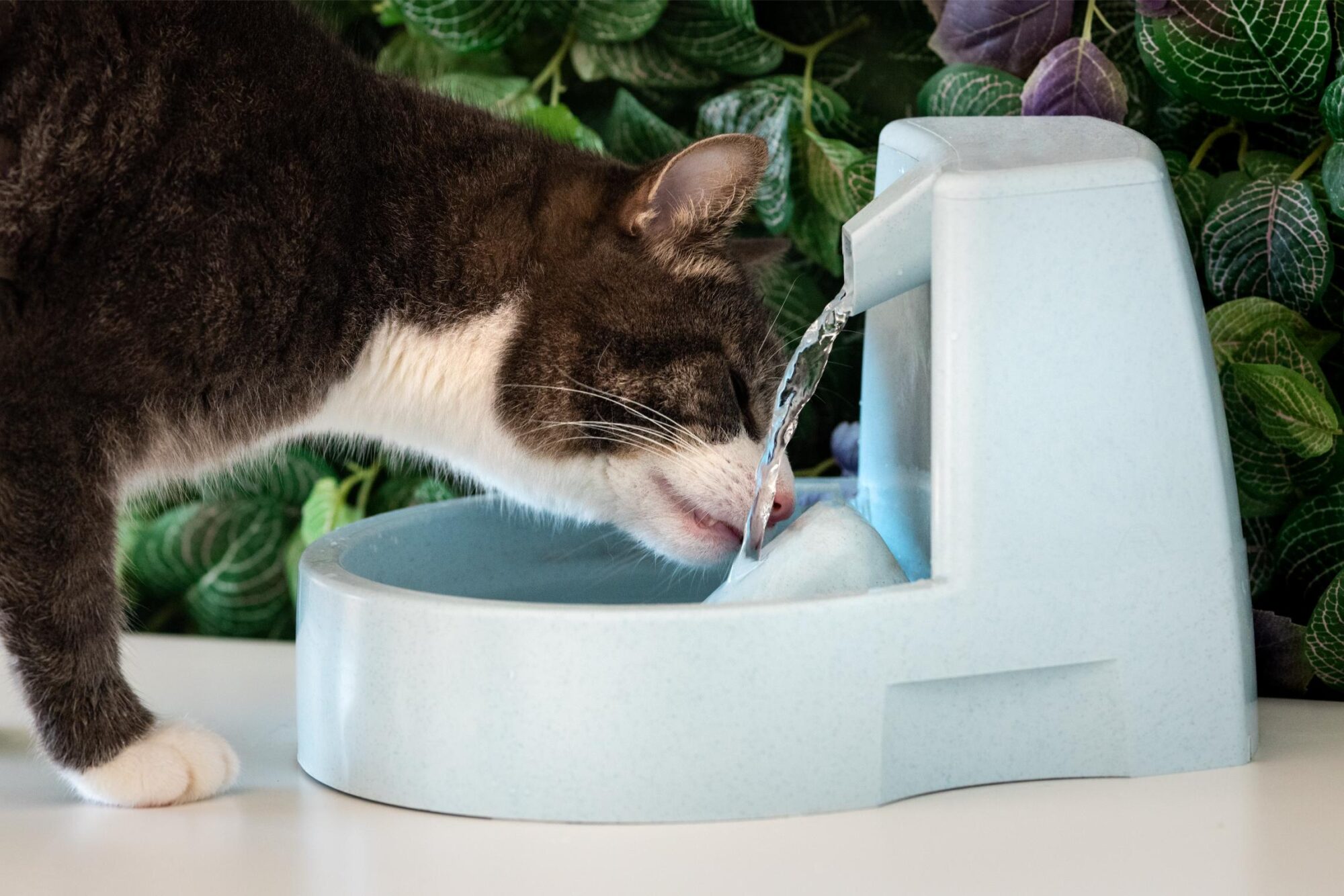Posts in Category: Pet Safety and Emergencies
Pet Hydration 101

Keeping pets hydrated is important all year long, but pet parents need to pay particular attention to pet hydration as temperatures start to climb. Water is essential to your pet’s overall nutritional needs, so our team at Bayside Animal Hospital has put together this primer on the importance of keeping pets hydrated.
Continue…Common Pet Poisons

Your home is your pet’s sanctuary—but lurking in the shadows of cupboards and countertops are hidden dangers that could put his health at risk. Accidental poisoning is one of the leading causes of emergency vet visits for pets. That’s why pet poisoning prevention is such a crucial responsibility for pet owners.
From sneaky snacks to household hazards, the team at Bayside Animal Hospital would like to share what you need to know about keeping your pet safe.
Continue…Holiday Foods You Shouldn’t Feed Pets

The holiday season is all about giving, and while it’s tempting to give your furry family member some tasty samples from the holiday spread, it’s important to know that some of our festive favorites are toxic foods for pets.
To keep your cat holidays and dog holidays merry and bright, our team at Bayside Animal Hospital has put together some holiday pet safety tips to help protect your pets from dangers on the dinner table.
Continue…What Is A Reverse Sneeze In Dogs?

If you’ve ever heard your dog do a reverse sneeze, you know exactly what it sounds like. Yes, the sound of it is bizarre enough to make a permanent impact. But what is a reverse sneeze, and how does it affect a dog’s health?
Continue…Frightened Furry Friends: Keeping Pets Safe During Firework Season

Most people “ooh” and “ahh” at the visual and aural effects of firework displays. Pets, on the other hand, tend to run for cover long before the first blast fizzles out. Because of their intensity and unpredictability, animals really don’t know what to make of the pops, cracks, fizzes, whistles, and booms of fireworks. Consequently, their fear, confusion, and stress trigger an innate fight-or-flight instinct that doesn’t always lead them to safety and security. With our Fourth of July safety tips, you can keep your pet happy, comfortable, and most importantly, safe.
Continue…Chill Out: Top Tips for Preventing Heatstroke in Dogs During the Summer

Dogs love to get outside all summer long. It just so happens that their increased interest and activity levels this time of year put them at risk for heatstroke. Luckily, there are ways to get in front of this dangerous health condition. With our prevention strategies, you and your dog can enjoy all the summer fun without any heat-related consequences.
Continue…On the Frontlines: How to Be Ready for Pet Emergencies

At Bayside Animal Hospital, we sincerely hope that you never have to face a pet emergency. If you do, though, we hope that you are as prepared as you can be. Dealing with pet emergencies is not something anyone wants to do, but being prepared can help to set you up for success.
Continue…April Is Heartworm Awareness Month

Heartworm disease is a serious problem for dogs and cats across the country, especially in California. Unfortunately, it is a disease that not many pet owners do not know enough about. Bayside Animal Hospital is excited to celebrate Heartworm Awareness Month with our readers and help animal lovers everywhere keep their pets safe from this dangerous disease.
Continue…Holiday Safety: Protecting Your Pets

The holiday season brings joy and warmth, but amid the twinkling lights and festive decor, it’s easy to overlook potential hazards to our furry companions. At Bayside Animal Hospital, we’re committed to pet safety. We want to guide you through December pet care essentials, ensuring your holiday remains merry and safe for all family members—including the four-legged ones.
Continue…Recognizing and Managing Diabetes in Pets

Diabetes is a complex disease affecting how your pet’s body uses glucose. This sugar gives the body the energy it needs to function, but it requires insulin to help it do its job. When a pet has diabetes, the insulin isn’t working as it should, which can lead to an energy starvation situation.
If left untreated, diabetes can lead to serious health problems like blindness and organ failure. So as your dog or cat gets older, it’s essential to watch for diabetes symptoms in pets.
The team at Bayside Animal Hospital shares the top five signs to watch out for when it comes to diabetic pets.
Continue…

